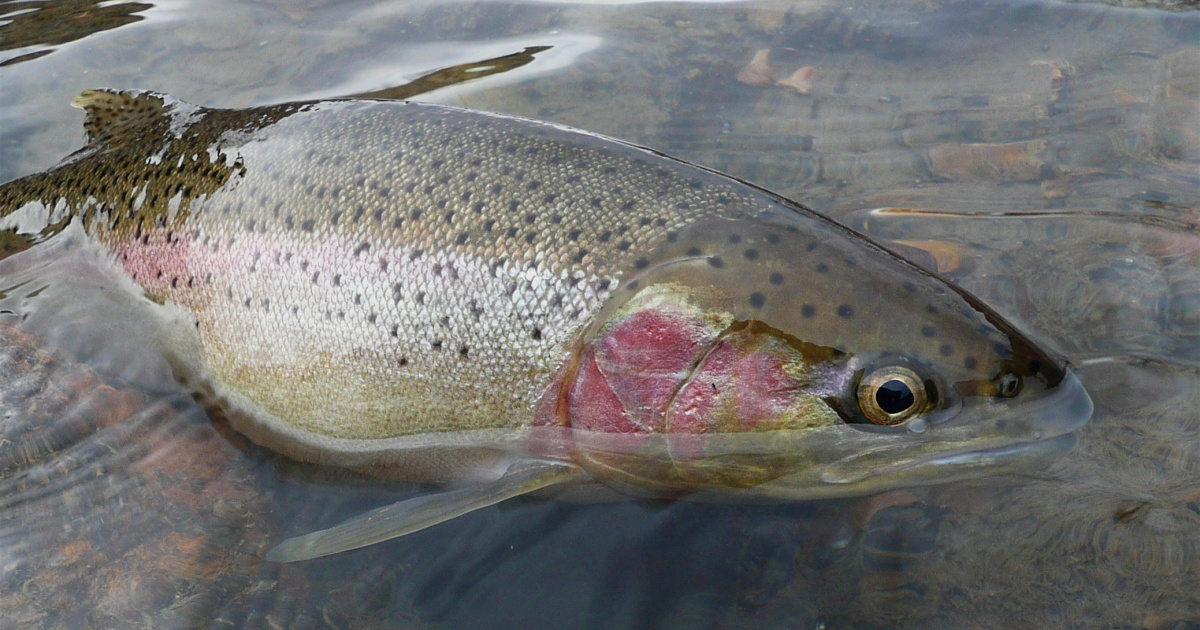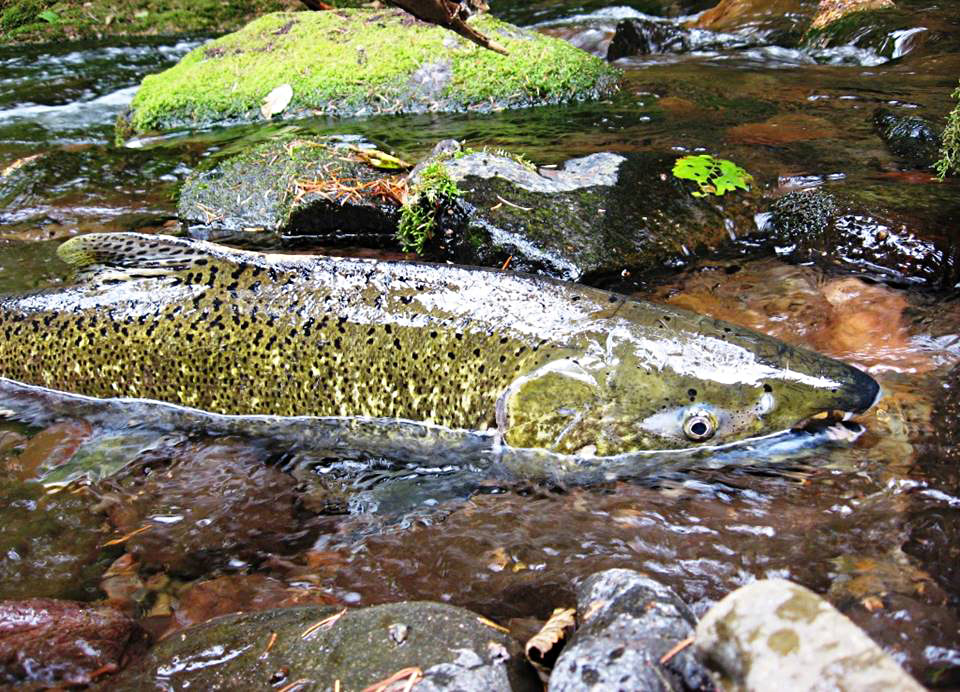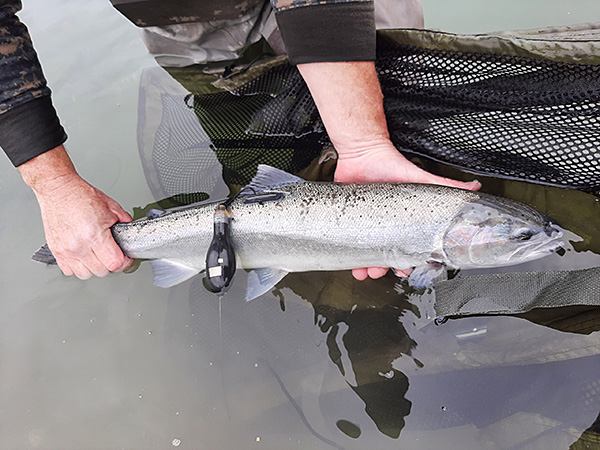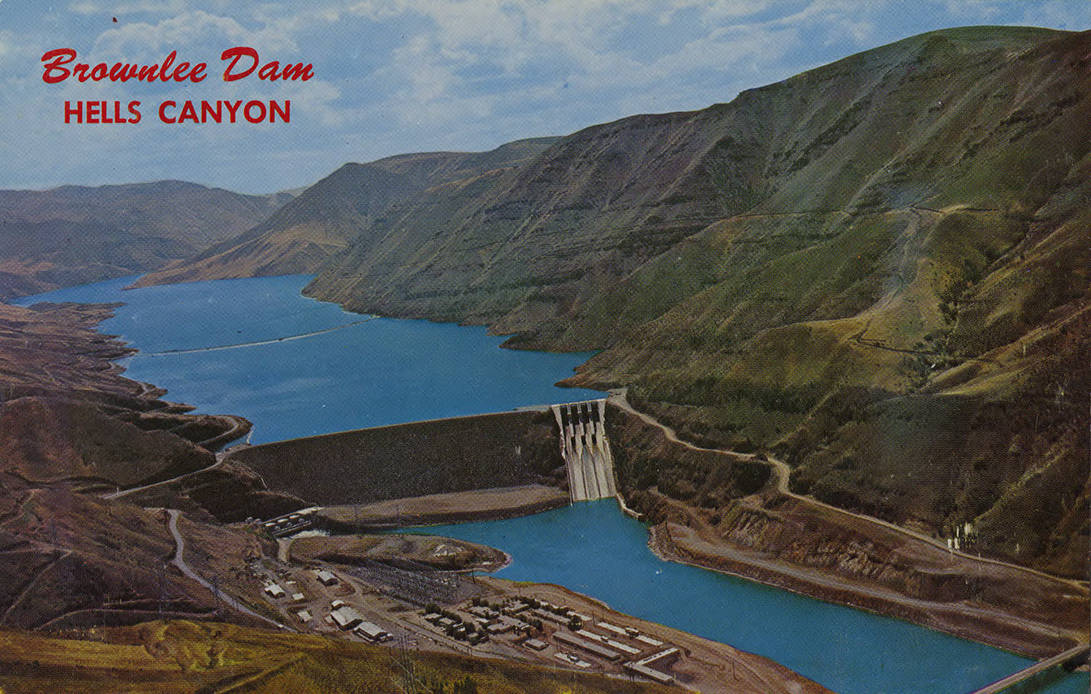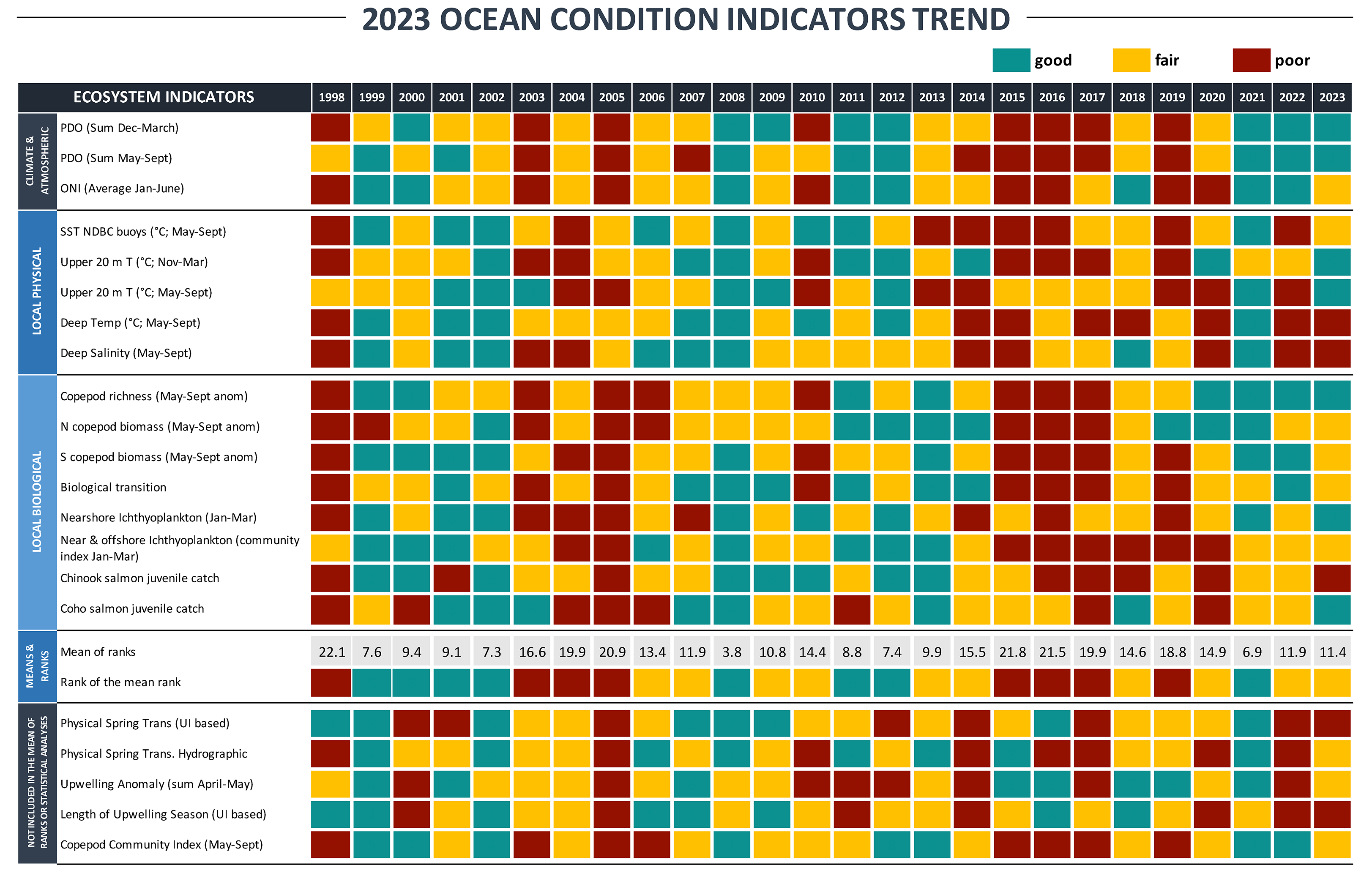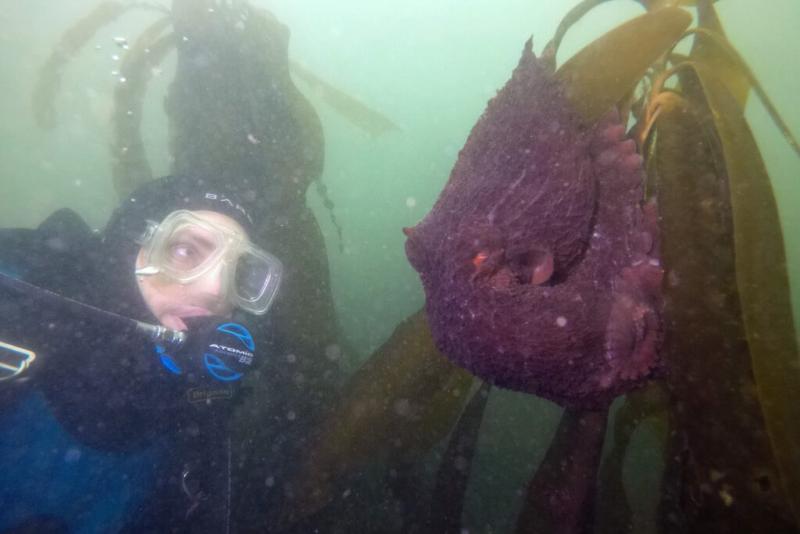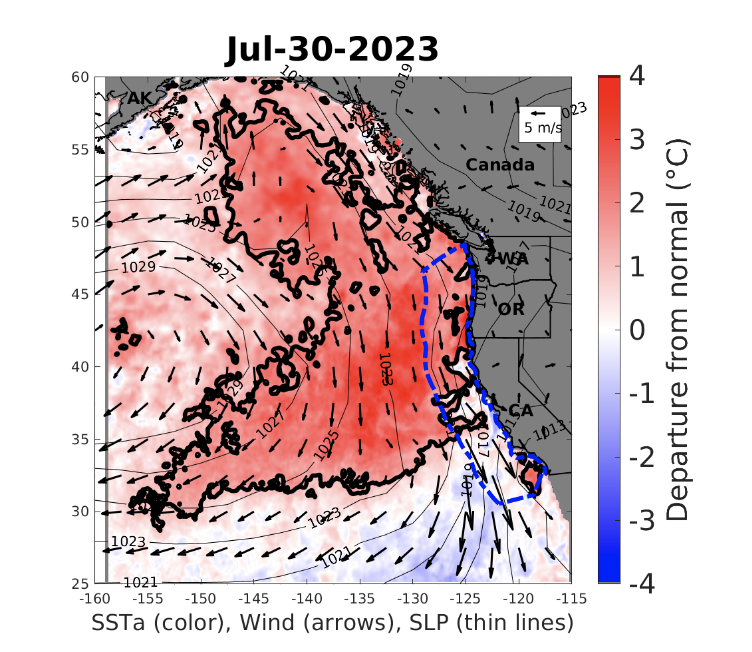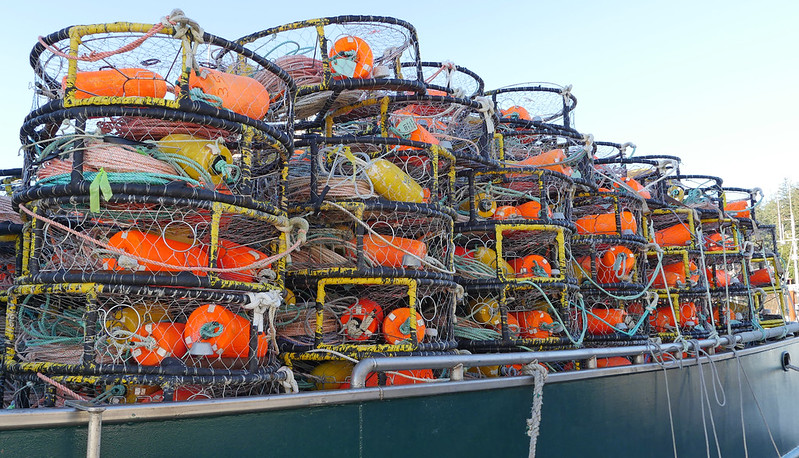Status Report: Though Some SW Washington Steelhead, Salmon Populations Under ESA Show Improved Numbers Since Listing, None Anywhere Near Recovery
April 18th, 2024
The status of southwest Washington salmon and steelhead listed under the federal Endangered Species Act is generally stable, although none of these fish populations are close to meeting recovery goals, says a recent report by the Lower Columbia Fish Recovery Board and the Washington Department of Fish and Wildlife.
Imperiled Steelhead Migrating Up Columbia/Snake River Show Lowest Survival Bonneville Dam To McNary Dam, Miss Survival Targets
April 18th, 2024
Asotin Creek adult summer steelhead survival is at its lowest in the Bonneville Dam pool as the fish migrate upstream to the Snake River tributary, according to a presentation last week that focused on survival of steelhead listed as threatened under the federal Endangered Species Act. Temperature and harvest (catch and release mortalities) are cited as the main reasons for steelhead struggles in the Bonneville Pool.
Fish Family Tree: McKenzie River Study Shows Reproductive Success For First Generation, Wild-Born Descendants Of Hatchery Chinook Salmon
April 18th, 2024
Researchers who created “family trees” for nearly 10,000 fish found that first-generation, wild-born descendants of hatchery-origin Chinook salmon in an Oregon river show improved fitness.
For First Time, Oregon Satellite Tagging Winter Steelhead ‘Kelts’ To See Where They Go In The Ocean; Rarely Encountered In Commercial Fisheries
April 5th, 2024
Oregon Department of Fish and Wildlife biologists in southern Oregon want to know where steelhead go in the ocean after they spawned in the rivers.
Dam-Sheds: Tribes Report Calculates Loss Of Spring/Summer Chinook On Upper Snake River Due To Dams At 1.4 Million Fish
March 22nd, 2024
An estimated 1.4 million spring/summer Chinook salmon were lost after multiple dams were constructed on the upper Snake River, according to a loss assessment recently completed by the Upper Snake River Tribes Foundation.
Ocean Conditions Key For Columbia River Basin Salmon/Steelhead Survival, NOAA Researchers Say About Average In 2023
March 22nd, 2024
urvival of Columbia River basin salmon and steelhead is poor – in most cases less than 2 percent smolt to adult returns – compared to a Northwest Power and Conservation SARs goal of 6 percent, according to a presentation at the Council’s March meeting.
Strong, Ocean-Warming El Nino Has Arrived But Researchers Say California Current Ecosystem Should Hold Up Better Than Last Time (2015)
March 22nd, 2024
The California Current ecosystem is a vital ocean system stretching from Washington to Baja California. It is facing a strong 2024 El Niño event, a cyclical warming of the Pacific Ocean. However, the latest information from NOAA’s Integrated Ecosystem Assessment program suggests the ecosystem is better positioned to weather these changing conditions than previous El Niño events.
OSU, NOAA Publish First Study Examining Marine Heat Wave Impacts On Entire Ocean Ecosystem In California Current, Food Webs Disrupted
March 22nd, 2024
Marine heat waves in the northeast Pacific Ocean create ongoing and complex disruptions of the ocean food web that may benefit some species but threaten the future of many others, a new study has shown.
Oregon Researchers Lead Effort To Expand Ocean Conditions Monitoring Using Sensors On Crab Pots
March 7th, 2024
Oregon State University researchers are leading an effort to refine the design and expand use of oxygen monitoring sensors that can be deployed in fishing pots to relay critical information on changing ocean conditions to the fishing industry.


